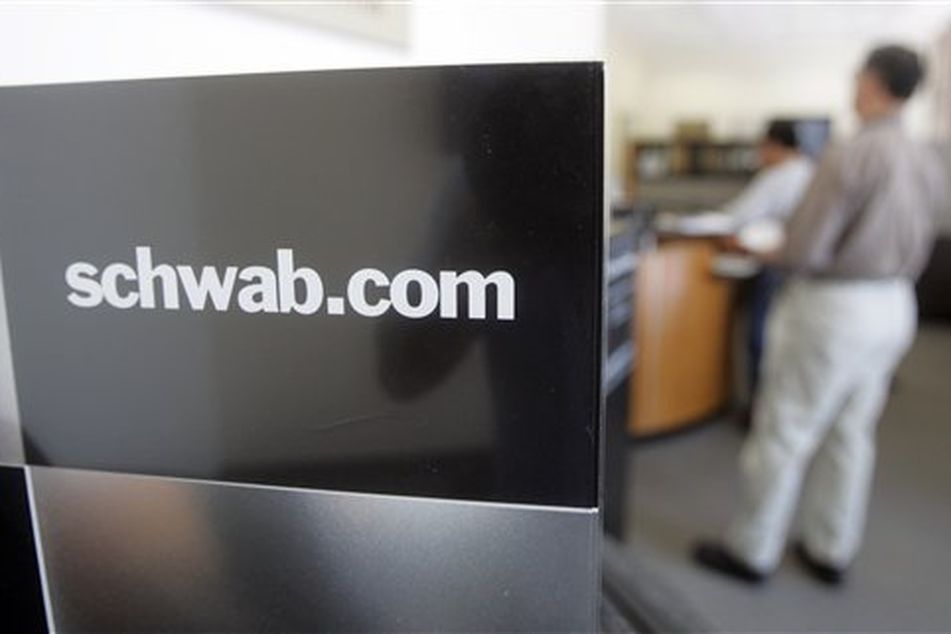Schwab franchise plan could be a hard sell

As The Charles Schwab Corp. officially begins promoting its new Independent Branch Services franchise program, observers wonder how the firm will pull off the ambitious plan to expand its footprint with independent contractors.
As The Charles Schwab Corp. officially begins promoting its new Independent Branch Services franchise program, observers wonder how the firm will pull off the ambitious plan to expand its footprint with independent contractors.
The company is recruiting advisers to buy Schwab franchises and insists it wants proven performers to run smaller outlets in areas where it has no existing branches.
But many advisers see little reason why someone would give up a successful practice to run a Schwab office.
What’s more, Schwab plans to split revenue fifty-fifty with established franchisees, who must cover the two biggest expense items for any advisory practice — rent and salaries. That strikes many as a tough sell in a market where independent RIAs and brokers keep most, if not all, of their revenue-before-expenses.
But Schwab is convinced it can attract what it calls “independent branch leaders” to buy into the concept and will begin opening offices this year, ramping up to a total of 60 to 70 by 2013.
Ad campaign
An advertising campaign for the program launched last week in the trade media. The pitch includes a website, schwabfranchise.com, dedicated to recruiting franchisee prospects.
Details of the franchise agreement, though, have not been publicly disclosed.
Over the past several months, the firm has attracted more than 300 inquiries from possible franchisees who work in a variety of other distribution channels, said Schwab spokesman Michael Cianfrocca.
The company has not had any takers yet, however.
And it is not offering the franchise opportunity to existing Schwab branch employees. The firm has always been touchy about its brokers leaving for competitors.
Some outside the company think the program is a strategy to expand on the cheap.
Not so, according to Schwab officials. The company sees the program as a “third way” between being a truly independent RIA and working as an employee selling the company’s offerings.
“Our primary objective is to grow in markets where our penetration is relatively light,” said Andrew Salesky, senior vice president of Schwab’s Independent Branch Services.
The independent franchisees will be offering the same package of services Schwab retail branches now provide, which raises the question of exactly how independent the franchisees will be.
Schwab officials said that the company offers a wide array of choices for investors, giving branch leaders plenty of flexibility.
Nevertheless, a franchise is “not likely to be an attractive opportunity for those who directly want to manage money,” Mr. Salesky said.
Some observers wonder why an adviser might give up ownership in a practice to become a franchisee.
“You’d have the benefit of the [Schwab] brand, which might be helpful, but one of the benefits of being an [independent] adviser is that you’re building equity in the business,” said Robert Kresek, managing partner at Founders Financial Network LLC, which manages about $560 million, some of it held at Schwab.
Branch leaders will be able to sell their franchise to a third party, Schwab officials counter, though the company hasn’t detailed how that would work. A sale would be subject to Schwab’s approval, and the company would have the right of first refusal.
In terms of the economics of running a franchise, “if it were a fifty-fifty [revenue] split after rent and salaries, that’s not a very good deal,” said Tim Hatton, president of Hatton Consulting, Inc., a Schwab-affiliated advisory firm that manages about $180 million.
“With a well-run RIA firm, the owner is going to take home 50% of revenue as profit, so [Schwab] has got to be somewhere in that neighborhood” to be competitive, he said. “If they get the compensation right, though, the [franchise] concept makes sense to me.”
Including startup support from Schwab and branch build-outs, franchisees will actually get more than 100% of revenues in the early years, Mr. Cianfrocca said.
Schwab is also picking up the majority of continuing technology costs, and some marketing and support costs, and will seed each new franchise with some existing firm clients.
The fifty-fifty revenue split is likely to occur once a branch is more established — perhaps after five years — Mr. Cianfrocca said,
“The way we’re looking at it, there’s significant enough growth potential for these [franchisees] that by year five or six, they should be scaled up to the point where … a fifty-fifty split should be economically attractive for them,” he said.
Ideal franchisees would have some assets to bring over, Mr. Salesky said, probably on the order of $20 million or less.
The franchise agreement has allowances that let the branch leader take those existing clients should he or she ever leave, Mr. Cianfrocca said.
“We’re looking for successful offices to [eventually] eclipse the $100 million asset level,” Mr. Salesky said, and bring in $10 million in net new assets yearly from a combination of Schwab’s market presence and active selling by the franchisee.
Most of the asset growth is expected to come from new clients, he said.
To some observers, the branch leader’s role sounds a lot like what Schwab’s RIA clients do, raising again the issue of Schwab competing with its RIAs.
“I don’t think until now that that [competitive concern] has been a legitimate beef, but it could become a big concern” now with the franchise program, said Jeff Spears, chief executive of Sanctuary Wealth Services LLC, which provides support services to breakaway advisers.
Concerns downplayed
Schwab officials downplay those concerns.
Franchised branches will stick with the mass-affluent market, Mr. Cianfrocca said, “and we continue to view RIAs as the best solution for investors who have a higher level of affluence [and] need customized investment management.”
In fact, the franchised branches will refer higher-end clients to Schwab RIAs, he said.
For his part, Mr. Hatton would welcome a local franchised office in his area outside Santa Barbara, Calif., where he comes across smaller investors whom he would like to refer. Schwab, he said, “can’t handle the clients I want, and I don’t want the clients they want.”
Learn more about reprints and licensing for this article.





